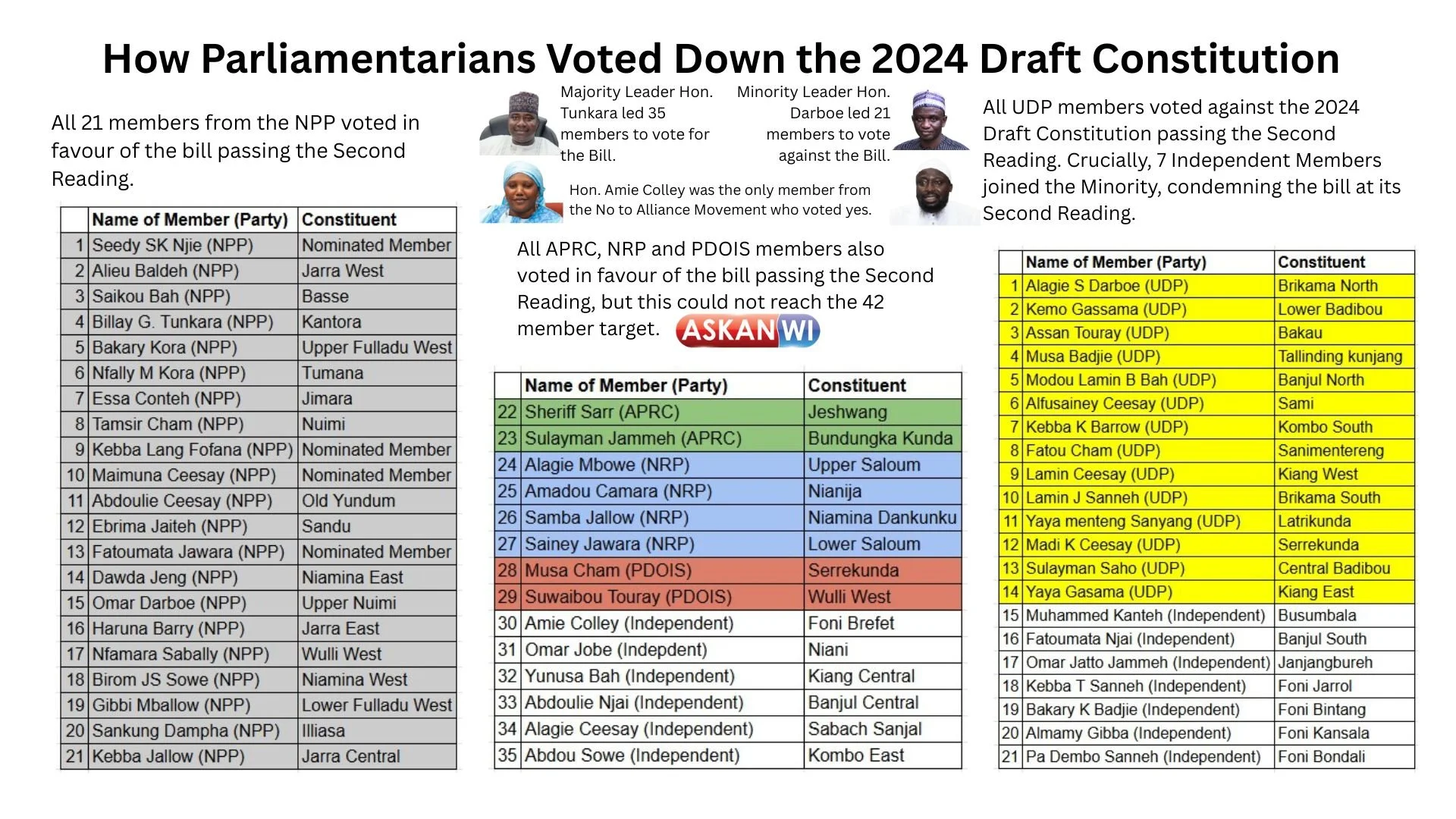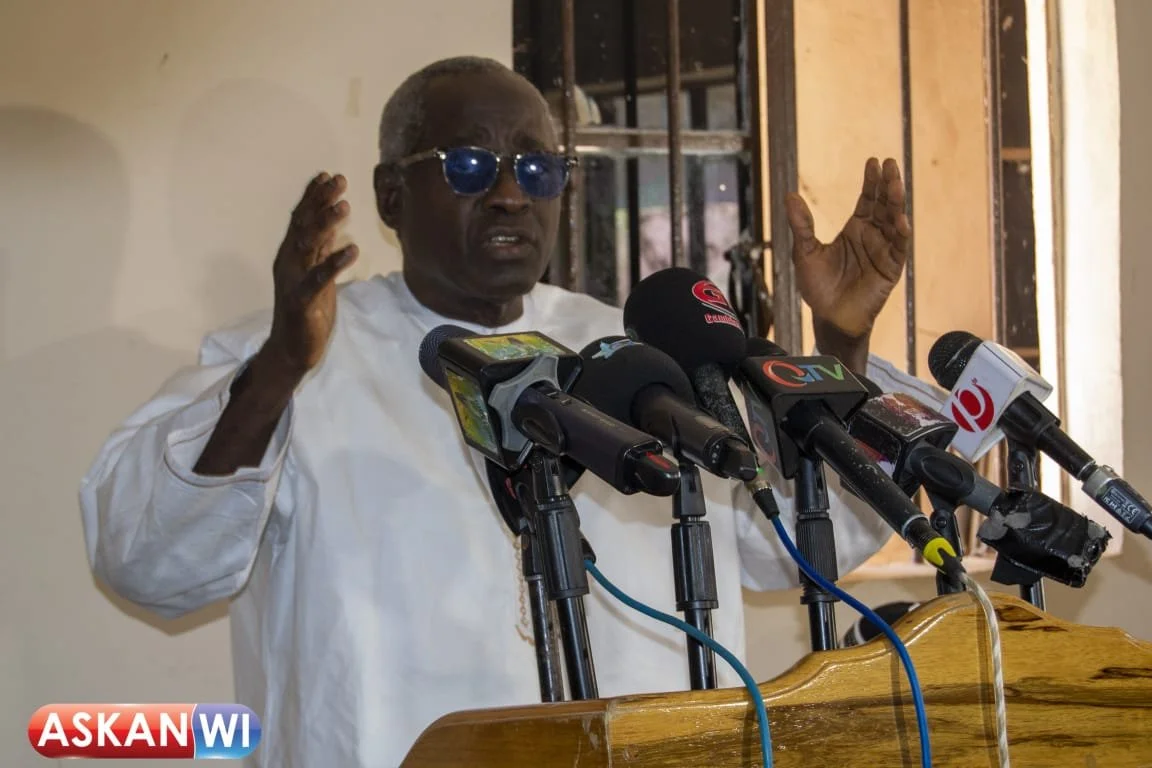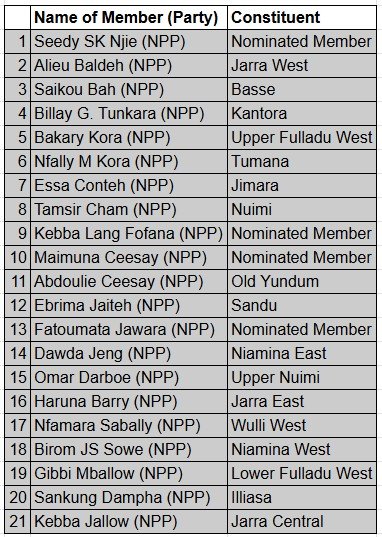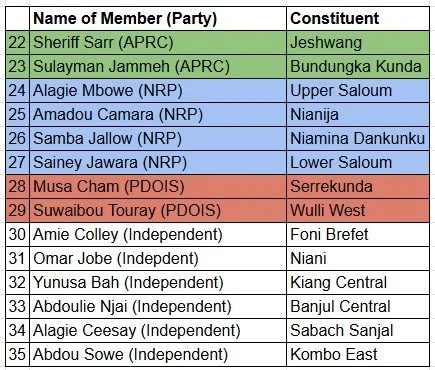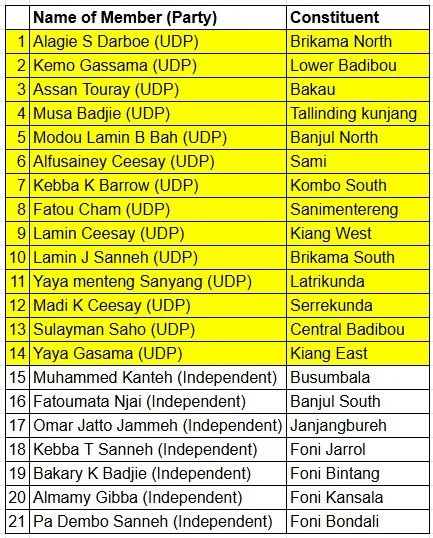FactSheet: How Parliamentarians Voted Down Gambia’s 2024 Draft Constitution
2024 Draft Constitution Voting Pattern © Askanwi
By Fatoumata Jaiteh
Gambian Parliamentarians aligned with the Minority Caucus have rejected the Constitution of the Republic of The Gambia (Promulgation) Bill, 2024 during its Second Reading on 7th June 2025—marking the second time Parliament has voted down the Executive’s effort to enact a new constitution.
Before President Adama Barrow’s administration came into office following Coalition 2016's victory, the Coalition promised Gambians a new constitution, criticizing the previous regime’s repeated amendments to the 1997 Constitution. Nine years later, Parliament has again denied Gambians the opportunity to vote on a new draft via referendum.
This FactSheet draws from Parliament’s Approved Order Paper dated Monday, 7th July 2025, which lists all 56 voting members present for this historic decision. According to the Order Paper, 35 members voted in favor of the 2024 Draft Constitution (hereafter referred to as “the Bill”), while 21 members opposed it.
This report identifies the members who voted for and against the Bill and explores the significance of the Second Reading in the legislative process.
Hon Halifa Sallah © Askanwi
The Second Reading Explained
Speaking at a press conference following the Bill’s rejection, former Parliamentarian Hon. Halifa Sallah clarified that many people misunderstood the role of the Second Reading.
For any Bill to become an Act, it must pass through the First, Second, and Third Readings, after which it is sent to the President for assent.
At the Second Reading stage, members are expected to vote solely on the merits of the Bill’s objectives and reasons. If passed, the Bill is committed to a Parliamentary Committee or the Committee of the Whole House. During the Committee Stage, stakeholders are invited and the public is consulted. The findings from this process are compiled in a report which guides the Bill’s Consideration Stage.
For Bills that contain entrenched clauses—as is the case with the 2024 Draft Constitution—a three-quarters majority (at least 44 members) is required at both the Second and Third Readings. However, amendments to the Bill or other general motions require only a simple majority.
This gives the Minority Caucus significant influence during the Second and Third Readings, as their support is essential for reaching the 44-vote threshold. On the other hand, for ordinary motions or amendments, the Majority Caucus, which holds more than a simple majority, has the upper hand.
How Members Voted
There are 58 members of Parliament, including the Speaker, Hon. Fabakary Tombong Jatta, who only casts a vote in the event of a tie. Hon. Salifu Jawo (NPP) was the only member absent with permission, bringing the total number of votes cast to 56.
Members Who Voted in Favour
A total of 35 members voted in favour of the Bill passing the Second Reading. This includes all 17 elected NPP members and four nominated NPP members (classified as Independents for procedural purposes), plus an additional 14 members.
21 NPP Members who voted yes © Askanwi
Other Members Who Voted Yes
The remaining 14 members largely consist of coalition partners such as NRP (4), APRC (2), and Independents. Notably, two PDOIS members also voted in favour of the Bill’s Second Reading—though this was mistakenly interpreted by some as full endorsement of the Bill in its current form.
At least two Independents who voted yes had previously defected from the UDP and the No to Alliance Movement. These are Hon. Abdou Sowe (Kombo East), who resigned from the UDP in February 2024, and Hon. Amie Colley (Foni Brefet), who joined the NPP in May 2025.
14 Members who voted yes © Askanwi
Members Who Voted Against
A total of 21 members voted against the Bill, halting its progress entirely. All members of the UDP voted “No,” along with Hon. Muhammed Kanteh (Busumbala), an Independent closely aligned with the UDP.
Seven of the “No” votes came from Independents—including four members of the “No to Alliance” Movement. These are five Foni-based members who remain loyal to former President Yahya Jammeh and rejected the APRC-NPP alliance, leading to their reclassification as Independents.
21 Members who voted no © Askanwi
The Power of Swing Votes
Our analysis shows that the seven Independent members who voted “No” ultimately determined the Bill’s fate. If the Majority Caucus had persuaded all five No to Alliance MPs from the Foni region—along with four additional votes from the remaining Independent members—the Bill could have passed.
In the end, only Hon. Amie Colley switched sides to support the Bill, which proved insufficient.
The key difference between this rejection and the 2020 Draft Constitution’s failure is that the roles have reversed. In 2020, a UDP-dominated Majority Caucus supported the Draft Constitution, while the Minority Caucus, including defectors aligned with the Executive, opposed it.
This time, the tables have turned.

